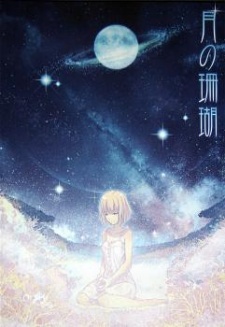Jan 12, 2021
Most dystopian or apocalyptic settings focus on whatever great disaster could bring our civilization to its downfall. After all, it's not like we have shortage of dangers to be wary of even now, from the climate to the economic crisis to the ever-present fear of wars or of the rise of dictatorial governments.
What makes Tsuki no Sango so peculiar, however, is that it's a world in which humanity actually surpassed all these perils, reaching a point where civilization is at its peak - and lost its purpose. It's diametrically opposed to Nasu's first published novel, Notes, which instead figured a dead Earth with an unrecognizable
...
humanity which had to deal with the invasion of superior beings; and yet, the "humans" of Notes had a power of will and a desire to live so strong that they survived the death of their own planet, facing creatures well beyond their understanding with great courage.
It's like in Tsuki no Sango humanity as a whole became some kind of old veteran, hurt too deeply by their past, who won the war but lost sight of why they fought it in the first place, or why anything mattered that much. Their vision is distorted, everything feels pointless, and they're now locked in endless monotony, alone with their thoughts and with no drive to keep living. With nothing to look forward to, they became more miserable than the new humans from Notes, who retained hope even while living through hell.
It's no wonder everyone is so interested in the Princess and her small island, as with its beautiful coral reef it's the only place which shines with life in such a mechanical world.
At its core, this is a story about love - or, more specifically, about learning how to love even when all love seems lost; it's particularly symbolic how the two protagonists are a disillusioned man who gave up on Earth and lacks emotional sensitivity and an inhuman being who had no one to learn it from in the first place.
With Tsuki no Sango, Nasu took a cynic and arid future, with two lonely and detached characters, and turned it all into poetry: the nostalgic kind, the one which makes you feel warm and hopeful and make you want to look forward to what's to come.
The bright coral reef, but a small point on a much vaster world, is not only significative of Tsuki no Sango's inner themes, but of the entirety of Nasu's works. Finding worth in a life of tragedy, the small light in the darkness, hope in the horror, will to live even in front of the blankest of futures are prevalent themes behind many of his stories and characters, and what ultimately make his dramatic scenes so powerful.
Especially in the current times, with 2020 just finished at the time of writing this review, in a world which keeps getting crazier and when observing people and events might make everything seem pointless, the concepts expressed in Nasu's works hold all the more power.
Reviewer’s Rating: 8
What did you think of this review?
Nice
 0
0
Love it
 0
0
Funny
 0
0
Confusing
 0
0
Well-written
 0
0
Creative
 0
0Show all

